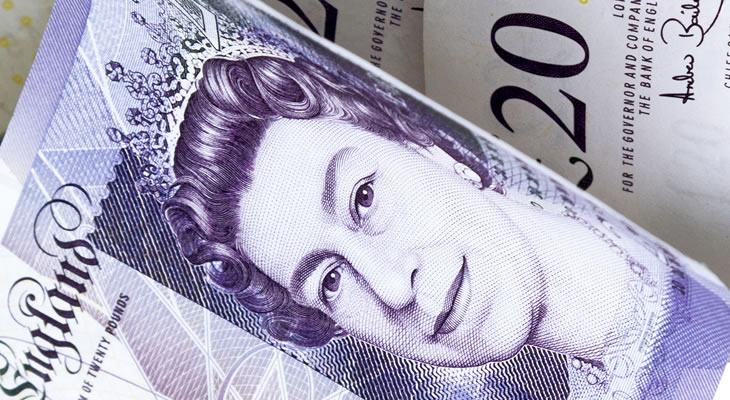Euro Pound (EUR/GBP) Exchange Rate Muted as UK GDP Returns to Growth in May as Car Production Recovers
The Euro Pound Sterling (EUR/GBP) exchange rate remained muted and the pairing is currently trading at an inter-bank rate of £0.8993.
On Wednesday, data revealed that the UK economy expanded by 0.3% in May following April’s slump of -0.4%.
Year-on-year GDP rose by a higher-than-expected 1.5% which likely provided Sterling with a slight upswing of support.
Added to this, the Office for National Statistics (ONS) showed that GDP rose by 0.3% in the three months to May.
However, the pairing was left flat as quarterly growth has slowed from the first quarter’s 0.5% growth.
Further disappointment came in the form of the UK services data, which showed the dominant service sector stagnated in May.
Commenting on today’s data, Rob Kent-Smith, ONS Head of GDP said:
‘GDP grew moderately in the latest three months, with IT, communications and retail showing strength. Despite this, there has been a longer-term slowdown in the often-dominant services sector since summer 2018.
‘The economy returned to growth in the month of May, following the fall seen in April. This was mainly due to the partial recovery in car production.’
‘Bleak’ Sales Leaves Sterling (GBP) Muted
On Tuesday, the British Retail Consortium (BRC) showed that annual UK sales edged up at the slowest pace since records began in 1995.
Average sales growth dipped to 0.6% while like-for-like sales plummeted to -1.6% in June.
Commenting on the data, BRC Chief Executive Helen Dickinson said:
‘Overall, the picture is bleak: rising real wages have failed to translate into higher spending as ongoing Brexit uncertainty led consumers to put off non-essential purchases.
‘The continued risk of a no-deal Brexit is harming consumer confidence and forcing retailers to spend hundreds of millions of pounds putting in place mitigations.’
Euro (EUR) Flat as German Recession Seems Inevitable
At the start of the week data revealed that a German recession appears to be inevitable.
An investor survey from Sentix showed that investors believe an economic recession in Germany is inevitable.
The index that measures current conditions and expectations for Germany fell to its lowest level in close to a decade.
Added to this the index slumped to its lowest since 2014 for the Eurozone as a whole which weighed on the single currency.
Meanwhile, industrial production rose in May, however annual production slumped.
Commenting on this, Chief Economist at ING German, Carsten Brzeski said:
‘Today’s industrial data suggests that, at least for the second quarter, the German economy is running out of powerful growth engines.
‘The data was not bad enough to panic but definitely not good enough to lean back and enjoy the summer.’
Pound Euro Outlook: Will Higher than Expected German Inflation Buoy EUR?
Looking ahead to Thursday, the Euro (EUR) could rise against Sterling (GBP) following the release of the German Harmonised Index of Consumer Prices.
If June’s inflation data edges up higher than expected, it could provide the single currency with an upswing of support.
Meanwhile, the Bank of England (BoE) is scheduled to release its Financial Stability Report which could dampen sentiment in Sterling.
If the BoE is overly dovish and focuses on Brexit and the global economic slowdown, it could cause the Euro Pound (EUR/GBP) exchange rate to rise.


Comments are closed.